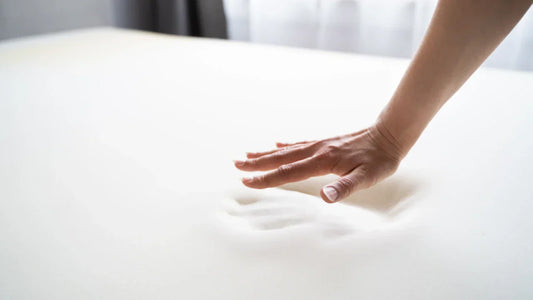We all crave a blissful seven-hour night’s sleep each night, but for various reasons, this doesn’t always happen. Exterior noises, your internal home environment, children waking, health factors and stress levels all play a part in the quality and quantity of your sleep.
Although, some of these factors are unavoidable, there are lots of things you can do to help improve the way you sleep. Putting a healthy sleep routine into practice isn’t difficult, but it does require repetition and dedication. Routine is the mother of good sleep, and it’s a pattern that, for best results, you will ideally stick to each night.
Here we have suggested four simple steps to get your sleep routine right.
Watch What You Eat & Drink

When it comes to food, try to eat your evening meal at last three hours before you go to bed to ensure it has fully digested. Following that, try to avoid the urge to snack on sugary sweet treats and biscuits. If you eat a heavy meal or sugary foods just before bed, you may wake with indigestion or the urge to go to the loo.
When it comes to drinks, avoid caffeine in the latter part of the day - it can stay in your system for up to 12 hours and will affect your ability to fall into a deep sleep. Similarly, alcohol stifles your body’s ability to enter the deeper stages of sleep. Despite making you feel more relaxed when you drink it, alcohol ingestion may contribute to impairment in breathing at night. You also tend to wake up in the middle of the night when the effects of the alcohol have worn off.
Turn Off The Tech

We’re all guilty of turning to technology before bed now and again. Whether it’s taking our laptops to bed when we’ve got a last-minute presentation to finish off, or scrolling through the posts on our social media account to see what our friends have been up to during the weekend. However, numerous studies have found that using your phone or tablet before bed is harmful to your overall health. So, now’s the time to start changing your habits.
Even if your conscious mind thinks it’s a good idea to look at your screen in bed, your sub-conscious mind thinks differently. Say you just received an email from an unhappy client, or just saw an Instagram comment you thought was rude or insensitive - it’s going to play on your mind as you try to relax in bed and make it more difficult for you to settle into a deep sleep.
Also, the blue light emitted by your screen restrains the production of melatonin, the hormone that controls your sleep-wake cycle (aka circadian rhythm). This will make it even more difficult for you to fall asleep and wake up the next day too.
Optimise Your Sleep Environment

Your bedroom should be a place of comfort and relaxation, so perhaps there are some adjustments that you need to make? Try to get rid of anything in your bedroom that might distract you from sleep, such as a noisy ticking clock, bright lights from an outdoor street lamp, scratchy bed sheets or a lumpy mattress.
Having a comfortable mattress that is designed for your body position when sleeping could really benefit your sleep quality - as well as your spine and neck too. As could investing in a high-quality pillow and some soft cotton bed sheets to help keep your temperature level throughout the night. In general, it’s better to keep your bedroom on the cooler side, rather than have the radiators blazing with heat. If your bedroom tends to get stuffy, try opening the window a fraction to let some cool night air in.
Embrace Some Quiet Time

We are all busy with work, family, hobbies and other activities. However, when it comes to our sleep routine, we need to plan some time to unwind. Even just ten minutes chill-time before bed could really make a difference to your quality of sleep.
Choosing a relaxing activity, such as reading a book or listening to music, should be part of your daily bedtime ritual. Perhaps you could practice a short bedtime yoga routine, or listen to a sleep-time meditation to help switch off your mind before you turn off the lights.
A warm bath made with lavender oil or magnesium salts could also help to promote relaxation before bed. The drop in body temperature after getting out of the bath may help you feel sleepy, and the bath can help you relax and slow down so you’re more ready to snooze.
Naturally, life changes frequently and sometimes without warning. Therefore, perhaps there may be times when you can’t follow your bedtime routine exactly as you’d planned. However, if you adhere to your sleep rules for the majority of the time, you are giving yourself the best chances of achieving your daily sleep goals.









